No matter whether you have a new baby, a young child, or teenagers living with you, they will depend on you in a crisis situation. If you have decided to bug in instead of move yourself and your family to another location, it may be weeks or even months before they can resume any kind of normal activities.
Needless to say, during that time, you will need to find ways to meet their basic needs as well as others that you take as a matter of routine. Here are some very important areas to consider that go beyond the basics of food, water, clothing, and shelter.
Failure to take these matters into account will invariably make it harder for children to cope during a crisis situation and may also do serious damage to their long term well being at many levels.
Keeping up With Education
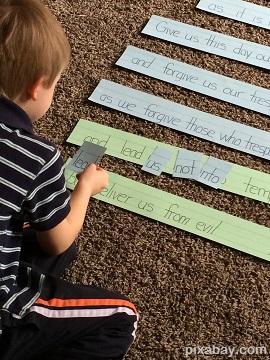
Community based education also tends to be one of the last things restored in the post-crisis world. For school age children and teens school routines are a normal part of life, and as such, they provide the comfort of “normalcy”.
Do not underestimate the power of school routines or providing an education during a crisis. Here are some things you can do to make sure your children focus at least some of their time on studies:
- Because current text books tend to be very expensive and constantly moving from school to home, it is impossible to say which ones your children will have on hand prior to and during the crisis event. Rather than try to guess, you can purchase older textbooks online that have similar information. For example, if your child has a brand new 10th grade math book, you can purchase books from as far back as the 50’s and 60’s for just a few dollars. Just make sure that the topics covered are the same. Aside from providing a fresh perspective on these topics, your children might just enjoy the novelty of working with a different text book.
- Make sure that you are always up to date on what your children are learning and what kind of homework they are doing.
- Have a few age appropriate novels or classics on hand for light reading. Aside from getting all kinds of classics for free via Project Gutenberg and other free ebook sites, you can also print them out and store them away.
- Know how much learning includes computers, calculators, and other electronic aides. In instance where computers or other devices are required, make a list of ways to manage this type of learning without these devices. Even if you can provide power for a tablet, calculator, or other device, that does not mean you will necessarily want to log into the device or use it. At the very least, if you have paper based methods ready and waiting, then your children can go on learning without the need for electronic aides.
- For math and science – obtain a slide rule that is suitable for both routine and complex math calculations. You can start teaching your children how to use the slide rule before a crisis so that they are accustomed to it. If your children protest using a slide rule, remind them that the United States successfully sent astronauts to the moon, and that those involved in the project relied on these relatively simple devices to get the job done.
- Purchase a few science fair projects or other exploratory kits that your children can use to build things and learn about the world at the same time. This is especially important if you have young children or teens that like to work with their hands or tend to be experiential learners. Even if your child has a hard time focusing on a textbook, sometimes these building kits can make an enormous difference
- Perhaps most important on this list, make sure that you can teach all of the lessons in the textbook if needed. Do not be afraid to spend extra time yourself with alternative text books while your child is at school in the pre-crisis period.
Social Development
This will be one of the hardest things to manage in a bug in situation. You child may not be able to communicate with friends or other family members. Over time, lack of contact with others can make it very hard for your son or daughter to reconnect with others.
Even a normally outgoing and well adjusted child can become shy or develop other problems. Unfortunately, once the crisis event happens, you won’t be able to change this.
Take the time know to fully understand how much contact your child needs with other people to feel comfortable and secure. If you have a naturally outgoing child or one that likes to be in groups, then you will need to spend a lot more time with him/her in the post crisis world.
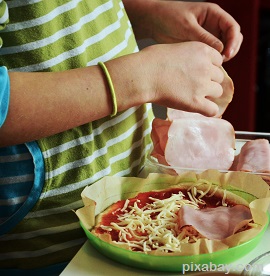
Perhaps it may seem strange, but children that tend to be shy or loners also need a good bit of socialization in the post-crisis world. If left to their own devices, these children can slip even further into their own little world. This, in turn will make it even harder for them to shift the gears as needed to engage with other people.
Utilize games and other activities where your child can interact with you and preserve at least some sense of being around others. Books and novels that focus on social interactions may also be of some help since they can provide models that will be remembered. Make sure that these books are based on constructive social interactions instead of destructive ones.
Managing Emotional Trauma Symptoms
If you think that social collapse and short/long term crisis will change your life forever, then you should also understand it will also change what the future holds for your children. Career choices that were once possible may no longer be open while all sorts of other plans and preparations will be more or less useless.
Under those circumstances, your children will be very confused and need more emotional support than usually. Here are some things you can do to prepare your children for managing these issues now, as well as enable them to cope better if a crisis happens to wipe out everything they have grown accustomed to:
- Go back to fundamentals and basics as a way of life. Refrain from modernizations that may not be available after a crisis occurs. This includes everything from video games to fast foods. Instead of fast foods, prepare meals at home. If you have a specific food plan for bugging in, try utilizing that plan at least once a week. Not only will you and your children have a chance to adapt to these alternative foods, they will become commonplace to the point where it will not be such a harsh transition on top of everything else that happens in a social collapse or other major crisis.
- Make sure your children know how to hunt, fish, prepare food, and manage the basics of living without modern conveniences. The more you can teach children about basic survival in a range of settings, the better chance they have of avoiding panic, anxiety, and other emotional problems that tend to occur in a crisis situation.
- Make sure you know the signs of emotional trauma and how to manage them without medication or other forms of conventional medical support. Take the time now to learn how to de-escalate situations instead of resorting to punishment or fighting.
- When it comes to emotional distress, there are many ways that therapists use various tools to help both children and adults regain control of themselves and their lives. These tools include guided meditations and making use of objects that can be associated with safety and wellness. Together with that, you may also want to try binaural music and other alternative therapies. To use the binaurals, you will need to store an mp3 player with the appropriate files and earbuds/headphones in the EMP proof section your bug in bag. I personally recommend the older style mp3 players that accept AAA batteries as opposed to the players that have the battery built in. Not are the older players much cheaper now, they last longer and it is very easy to use them with rechargeable batteries that are readily available.
Managing Mental Trauma Symptoms
It is very important to realize that in the days after a major crisis, your child may have difficulty focusing, remembering, and engaging in other mental activities at a normal level. Since you may also be having similar problems, it is important not to judge or push your child excessively beyond his/her limits.
Always bear in mind that any person can and will most likely have problems after a crisis situation. Even though reduced capacities may exist, that does not mean the responses are abnormal. Rather than judge or punish, try to look for ways to help your child return back to, and then beyond his/ her former mental function level. Some things you can do include:
- Focus more on art or building related activities instead of purely mental ones. As time goes on, increasing attention spans and focus can be gradually shifted back into books or more academic tasks.
- Give you child chances to feel confident of his/her abilities as opposed to constantly supervising. You can try assigning chores as well as longer range goals that your children can work towards.
Health and Physical Wellness
As may be expected, providing adequate food, water, and clothing is extremely important and may well be the priority you think about most in a time of upheaval. It is also very important to think about medications for pre-existing conditions as well as any injuries that may occur.
It is very important to realize that many children today are over medicated and may be in far more need of a proper diet and exercise than they are of pills that only make them sicker. Take the time now to see what kinds of natural remedies are available for diagnosed illnesses as well as suitable dosages.
If you cannot find a pediatrician to help you, do not hesitate to look at the side-effects listed on any drugs that you child is already taking.
When you find cases where these drugs may cause sterility, cancer, heart disease, or symptoms that your child is experiencing, you can try contacting the state licensing board, a lawyer for the purpose of starting a lawsuit against the pharmaceutical company and the doctor, parental rights activist groups, natural remedy activist groups, and the media.
Sadly, in today’s world, parents are often superseded by doctors and school administrators simply because they do not know how to use the legal system to stop the harm being caused their children.
Not only is this important to consider in a time of crisis when routine medications may not be available, it is very important to your child’s well being and capacity to bring forth the next generation regardless of what happens to our society.
Self-Defense
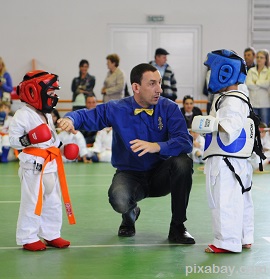
It does not matter which form of martial arts your child studies as long as he/she gets good quality training and a range of physical, mental, and emotional skills that will last a lifetime. In fact, if you are debating between buying yet another batch of video games and other things to “amuse” your children, it is much better to send them for martial arts training.
Aside from helping your children defend themselves in a crisis, martial arts training will also help them if society does not collapse. If you do some research, you will find countless stories of teens and youth whose lives were turned away from mayhem by martial arts training.
In that respect, you will truly be preparing your child to live a good life with character as well as the capacity for self defense in the time of major upheaval.
Boredom and the Need to Play
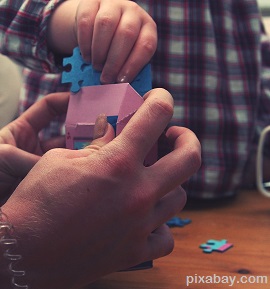
This includes time for developing physical skills as well as mental ones. Play time and unstructured time are extremely important for healthy development. Sadly, video games and other forms of electronic entertainment only serve to keep children focused on goal acquisition or focusing concentration in pre-defined pathways instead of letting them expand and develop on their own.
You can start reversing this process now by limiting, and then completely eliminating video games and other forms of electronic entertainment.
Encourage your children to engage in real, tangible social activities with their friends as well as pick up hobbies they can work on at home while alone. This should include hobbies that can be worked on if you are bugging in and have no place else to go. Some activities (based on age) might include:
- Working with building blocks and tinker toys
- Model building
- Science fair projects
- Sculpture oriented arts
- Building electronic devices without the use of transistor or resistor based parts.
Special Needs for Infants
Even though babies may not need much in the way of toys and complex educational materials, they still have some special needs that may suddenly be impossible to fill in a crisis.
For example, if you are currently feeding your baby infant formula, it may be impossible to supply that, let alone make a suitable replacement with the foods you have on hand.
If you are pregnant or plan to get pregnant, it may be worthwhile to consider breastfeeding. At the very least, you can have some assurance that you baby will get some nutrition if a disaster occurs before your baby completes this stage of development.
Other than eating and sleeping, your child will also produce a fair amount of waste. Oddly enough, cloth diapers may not be the best single option to have on hand because there may not be enough water, disinfectant, and soap available to wash them.
It may be to your advantage to store away at least some disposable diapers as well as cloth ones so that you can use them as needed. Needless to say, it will also be important to store away baby safe washes as well as learn how to make them on your own from any plants that you choose to grow.
Special Needs for Toddlers
It is no secret that telling a toddler what to do is about as useful and effective as trying to do the same with a cat. Unfortunately, if a toddler has a screaming tantrum or decides to start a game of “catch me if you can” when thieves are lurking outside, or during some other crucial moment, it can spell disaster for everyone.
Oddly enough, this is one of the few situations where a soundproof safe room may come in handy. If you suspect something is going on outside your home, or a situation is ongoing, place your toddler in the room.
You will also need to be sure that zones of fire around the safe room and your defense abilities are sufficient to prevent invaders from getting to your child. It is up to you to decide when and if you will go to the safe room during a direct confrontation with invaders.
Special Needs for Teens
At times, it may seem like teens are even more stubborn and determined to do what they want than toddlers. On the other hand, teens are usually much easier to manage when they have an important task and feel good about themselves.
During a bug in situation, make sure that teens have enough tangible tasks to keep them busy. Try to work with them as equals, yet give them enough guidance so that they are not left trying to think 100% for themselves. In preparation for this time, make sure that you understand how your teen’s mind and emotions work, and how to bring out the best in them.
Some teens may be relatively easy to steer into productive ventures while others may take a bit of extra work. Finding the best paths and options now will ensure you know what to do in a crisis. It may also make your pre-crisis household far less chaotic and filled with stresses that go with the teen years.
If you have children, then you are likely to be aware of how important it is for the next generation of humans to grow up and take their place in the world. During a major crisis situation, it can become all too easy to forget that personal survival also equates to the survival of our species and its progression through time.
Aside from giving your children all the love and care they need now to thrive, make sure that you are as prepared as possible to take on extra duties during a survival crisis in which neither they nor you can have normal contact with the rest of the world.
Interested in improving your EMP survival skills? CLICK HERE to find out more!
This article has been written Carmela Tyrell for Survivopedia.


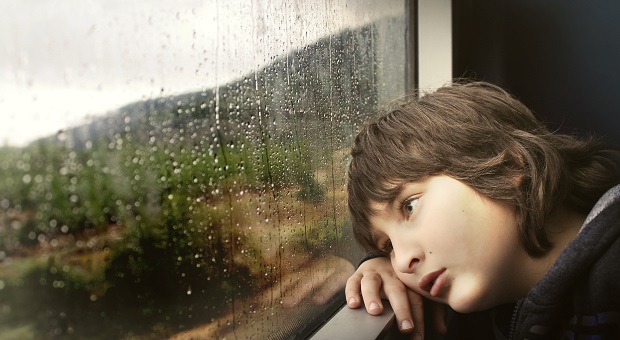
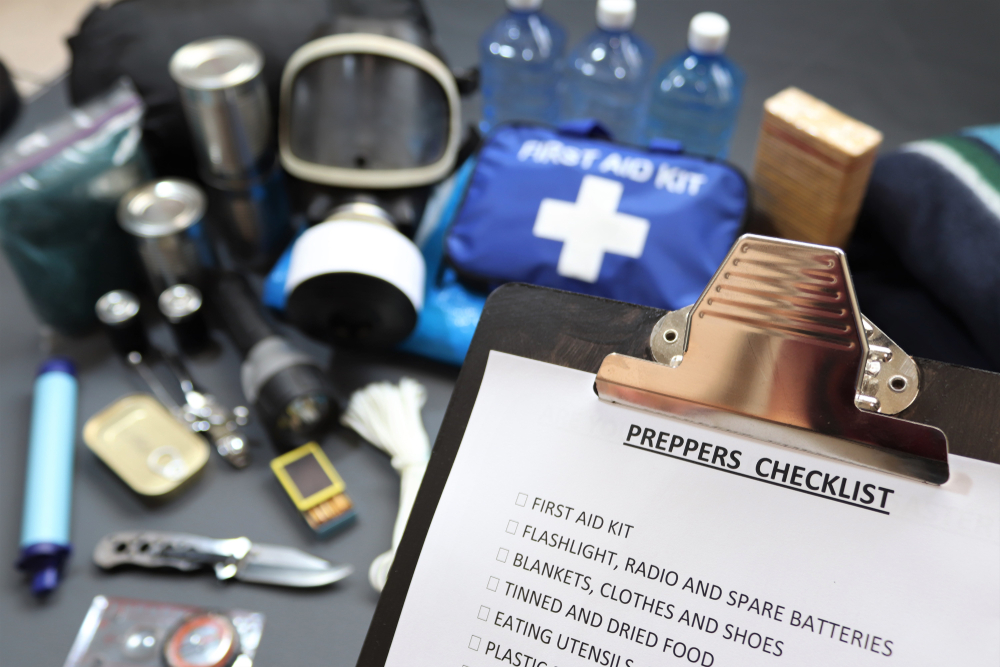
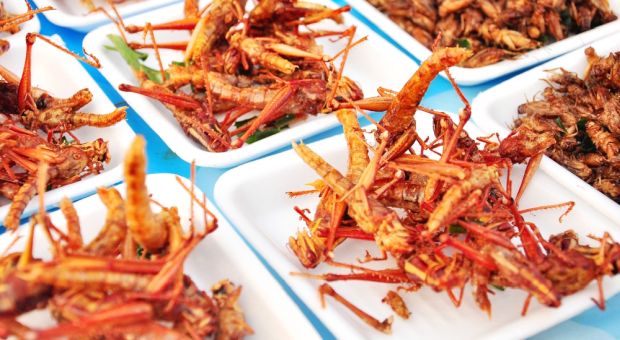



Pingback:10 Things To Prepare For When Bugging In With Children - Survivalot | November 22, 2015
|
Pingback:10 Things To Prepare For When Bugging In With Children - Survival By Preparedness | November 22, 2015
|
Pingback:10 Things To Prepare For When Bugging In With Children | Prepper's Survival Homestead | November 22, 2015
|
Pingback:10 Things To Prepare For When Bugging In With Children | Bsn Global News | November 22, 2015
|
Pingback:Survival News 11/22/15 - Survival By Preparedness | November 23, 2015
|
Pingback:10 Things To Prepare For When Bugging In With Children | Freedom Newz | November 23, 2015
|
Pingback:10 Things To Prepare For When Bugging In With Children - Apocalypse Supplies | December 23, 2015
|